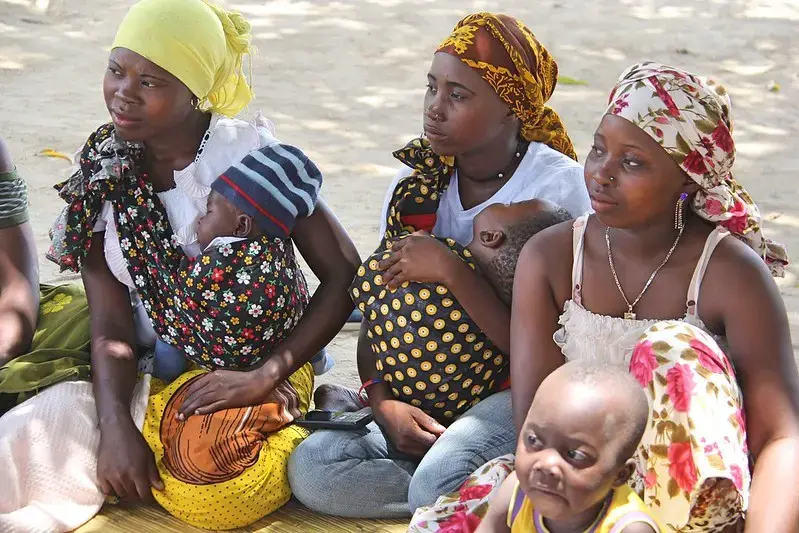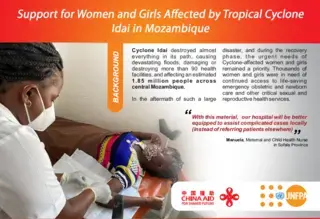When Cyclone Idai hit Mozambique on the 14 March, more than 1.8 million people were affected, including around 438,000 women of reproductive age. That is thousands of women and girls that will have to find a way to manage their menstruation after the devastation brought about by the cyclone.
The United Nations Population Fund (UNFPA), visited the Mutua resettlement site in Beira on 11 May, where a Women-Friendly Space was established to provide women and young girls a safe space to meet. In Mutua, the women pass their free time making clay pots and weaving baskets, this is where 42-year-old Vitoria, shared her story of survival. Vitoria had to swim away from her home with her children to seek shelter. The water levels rose so high that she had to climb a tree and hold on until help arrived.
Vitoria was finally rescued but had lost all of her clothes in her battle for survival, in the midst of all of this, she was menstruating. Vitoria says, “I was fine until we got on the boat with strangers, including men, I was naked, and it was obvious to everyone that I was menstruating, I had to use both hands to cover myself. But the blood dripped down until my legs.”
Menstruation, and Menstrual Health Management (MHM) have always been an issue for women. Issues which have been considered private, and often shameful. Vitoria affirms that at that moment, people were kind as they were all suffering and fighting for survival together, but she couldn’t help feeling ashamed as traditionally, women and girls are taught to keep their menstruation secret, including from their own mothers and children.
Today, Menstrual Health Management day, UNFPA reiterates its commitment to opening up dialogue about menstruation and menstrual health management, as these are healthy phases and issues women encounter throughout their lives. UNFPA Mozambique has distributed over 3,000 dignity kits since Cyclone Idai hit central Mozambique and after Cyclone Kenneth made landfall in Cabo Delgado province. These dignity kits include disposable and reusable pads and underwear allowing the thousands of women and girls like Vitoria some dignity and relief, giving them one less thing to worry about as they rebuild their lives.




